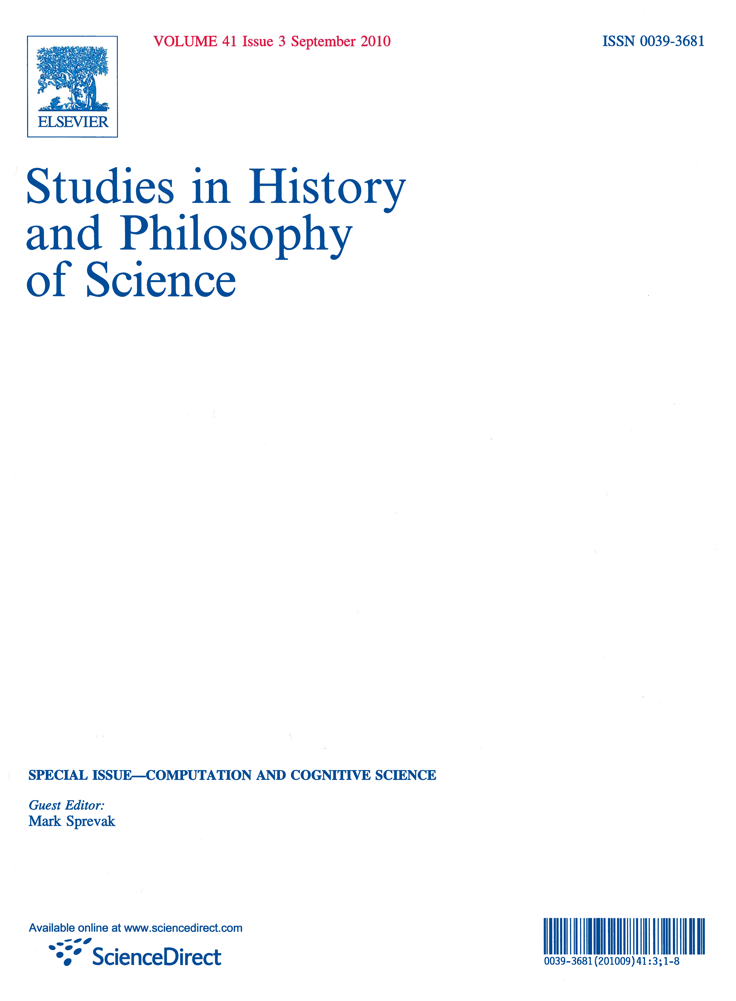Special Issue on Computation and Cognitive Science
2010 Studies in History and Philosophy of Science
Last updated 15 April 2010

A number of papers in this volume developed out of papers presented at a conference on Computation and Cognitive Science held in King’s College, Cambridge, 7–8th July 2008. I would like to thank all the participants and speakers for making the conference such a productive and enjoyable occasion. I would also like to thank the sponsors of the conference: the British Academy, the British Society for the Philosophy of Science, King’s College, Cambridge, the Mind Association, and Microsoft Research.
Contents
Introduction: Computation and cognitive science – Mark Sprevak
Computation in cognitive science: it is not all about Turing-equivalent computation – Kenneth Aizawa
Computation vs. information processing: Why their difference matters to cognitive science – Gualtiero Piccinini and Andrea Scarantino
Deviant encodings and Turing’s analysis of computability – B. Jack Copeland and Diane Proudfoot
Computational models: A modest role for content – France Egan
Computation, individuation, and the received view on representation – Mark Sprevak
Brains as analog-model computers – Oron Shagrir
Classical computationalism and the many problems of cognitive relevance – Richard Samuels
Embodied cognition and linguistic comprehension – Daniel A. Weiskopf
Language understanding is grounded in experiential simulations: A response to Weiskopf – Raymond W. Gibbs and Marcus Perlman
Understanding is not simulating: A reply to Gibbs and Perlman – Daniel A. Weiskopf
How we ought to describe computation in the brain – Chris Eliasmith
Dynamic mechanistic explanation: Computational modeling of circadian rhythms as an exemplar for cognitive science – William Bechtel and Adele Abrahamsen
